Math K.7(B)
compare two objects with a common measurable attribute to see which object has more of/less of the attribute and describe the difference.
- Free Plan
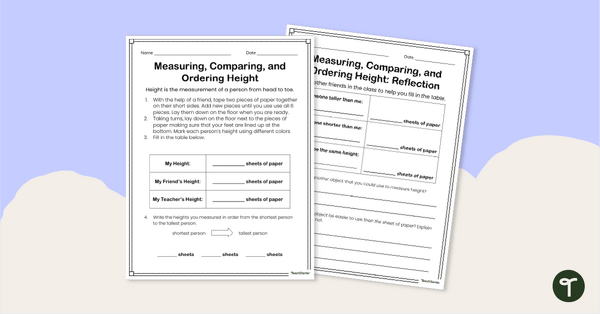
Measuring, Comparing, and Ordering Height – Worksheet
Measure length using informal units with an engaging hands-on collaborative measurement activity.
- Free Plan
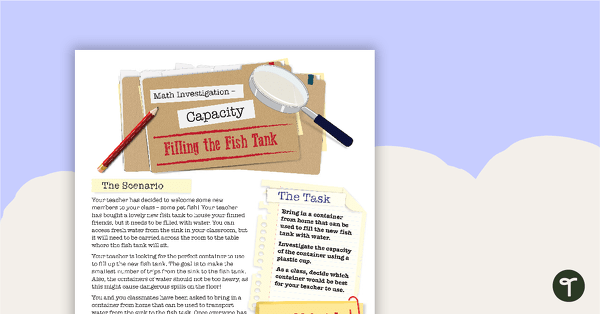
Capacity Math Investigation - Filling the Fish Tank
A mathematics investigation involving capacity, embedded in a real-world context.
- Plus Plan
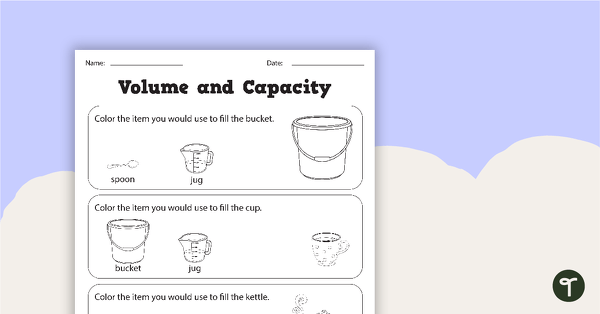
Volume and Capacity Worksheets
A set of 6 worksheets aimed at improving students' basic understanding of volume and capacity.
- Plus Plan
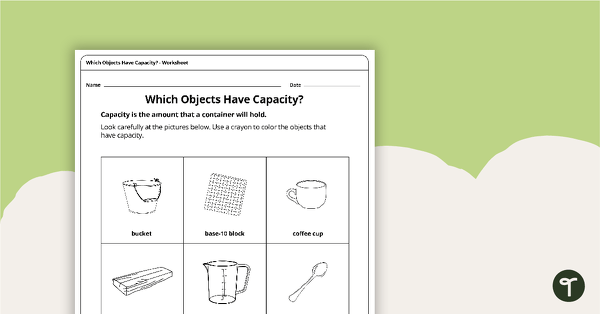
Which Objects Have Capacity? - Worksheet
A worksheet to use when exploring the concept of capacity.
- Plus Plan
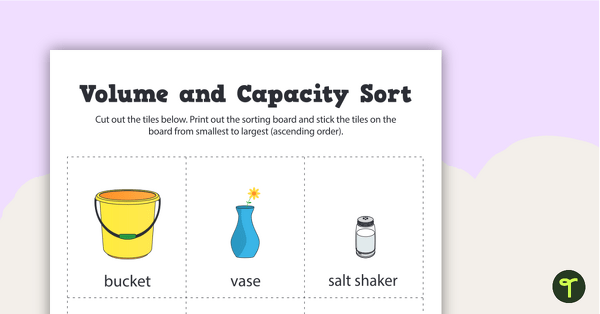
Volume and Capacity Sorting Activity
A sorting activity to practice comparing the capacity of different objects.
- Plus Plan
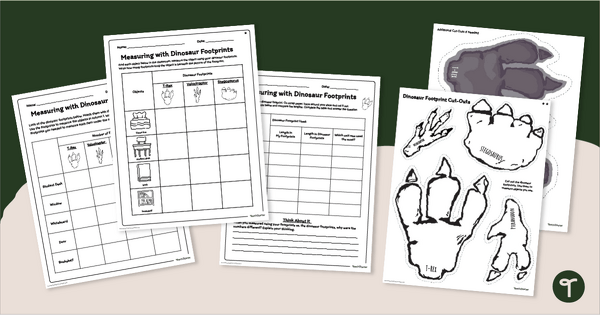
Measuring with Dinosaur Footprints - Hands-On Math Task
Engage your students in learning about informal measurement with a 'Dino-Mite' hands-on measurement activity in which they use dinosaur footprints to measure objects around the classroom.
- Plus Plan
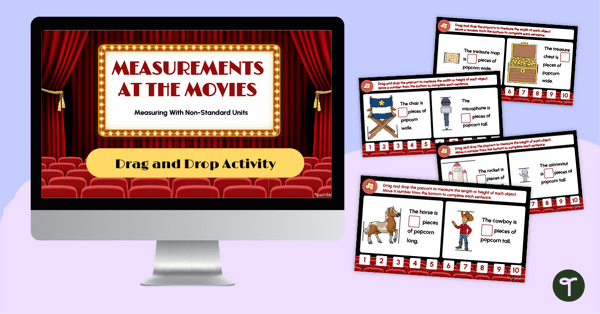
Measuring at the Movies – Informal Units Interactive
Practice measuring with informal units with an exciting movie-themed interactive drag-and-drop activity.
- Plus Plan
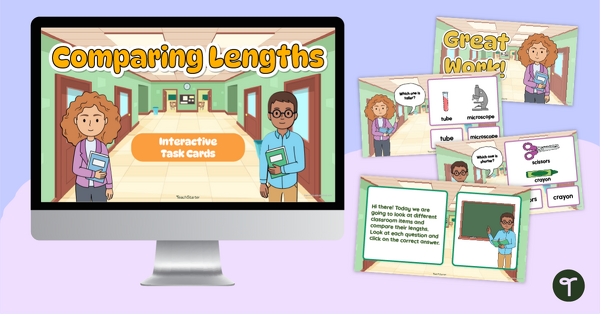
Comparing Lengths – Measurement Game
Identify what is shorter or longer with an engaging interactive measurement game.
- Plus Plan
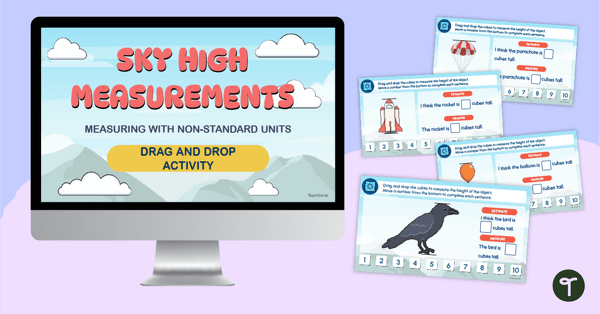
Sky High Measurements With Non-Standard Units Interactive
Practice measuring in informal units using connecting cubes with a digital measurement activity.
- Plus Plan
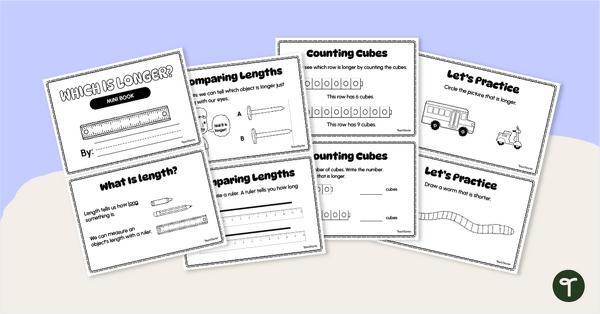
Which Is Longer? – Mini Book
Compare the length and height of various common objects with this 8-page mini-book.
- Plus Plan
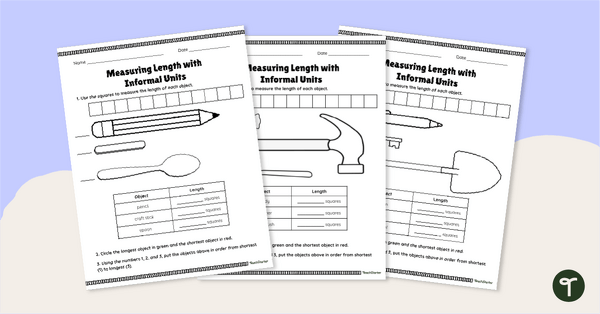
Measuring Length with Informal Units - Worksheets
Experience measurement with informal units using a set of printable 1st grade measurement worksheets.
- Plus Plan
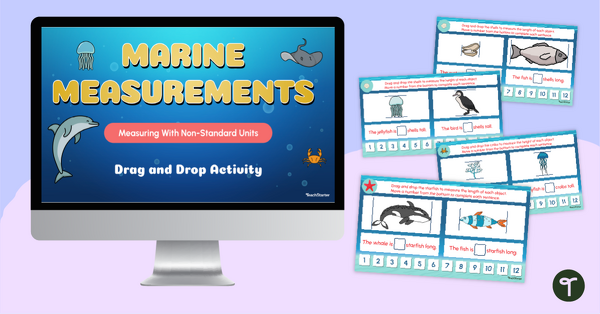
Marine Measuring With Nonstandard Units Interactive
Dive into measurement with informal units using an engaging ocean-themed interactive measurement activity.
- Plus Plan
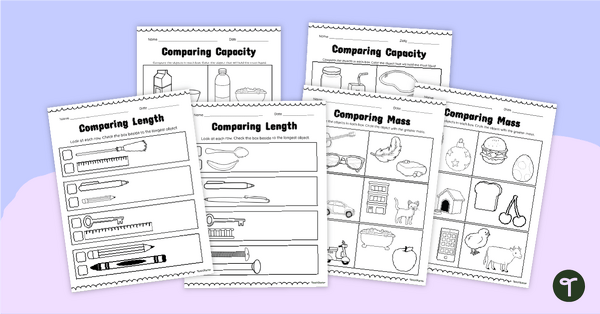
Kindergarten Measurement Worksheets - Comparing Length, Mass, & Capacity
Practice comparing units of mass, capacity, and length with a printable pack of kindergarten measurement worksheets.
- Plus Plan
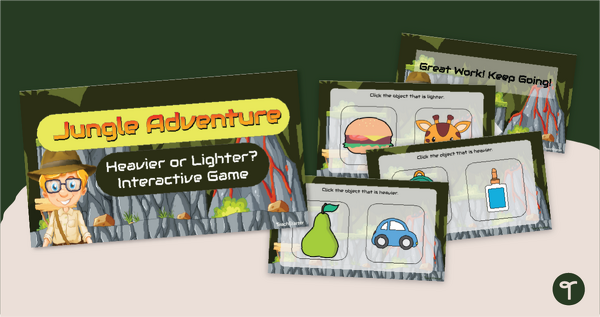
Which Is Heavier? – Kindergarten Math Game
Have your students practice identifying heavier or lighter objects with an engaging “Which is Heavier" interactive game.
- Plus Plan
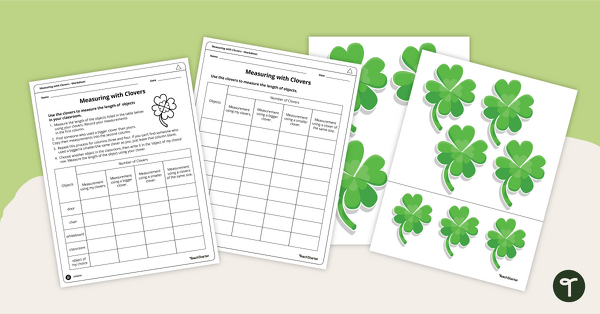
Measuring Length with Clover Worksheet
Measure familiar objects using our lucky clover in this St Patrick’s Day math activity!
- Plus Plan
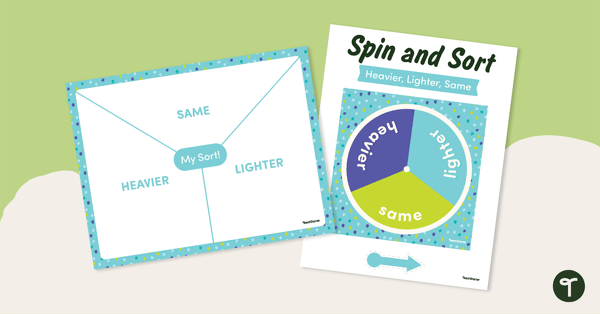
Spin and Sort – Heavier, Lighter, Same
Practice comparing weight with this sorting activity.
- Plus Plan
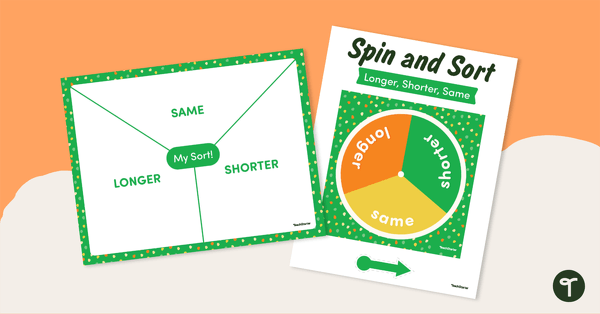
Spin and Sort – Longer, Shorter, Same
Practice comparing lengths with this sorting activity.
- Plus Plan
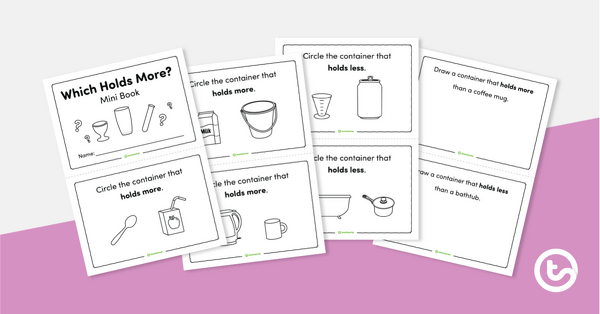
Which Holds More? – Mini-Book
Compare the capacity of various containers with this 8-page mini-book.
- Plus Plan
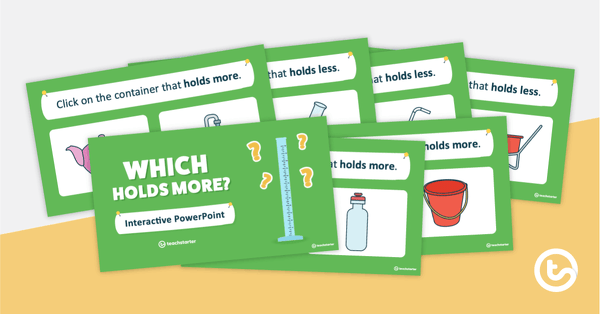
Which Holds More? – Interactive PowerPoint
An interactive PowerPoint quiz that asks students to compare the capacity of various containers.
- Plus Plan
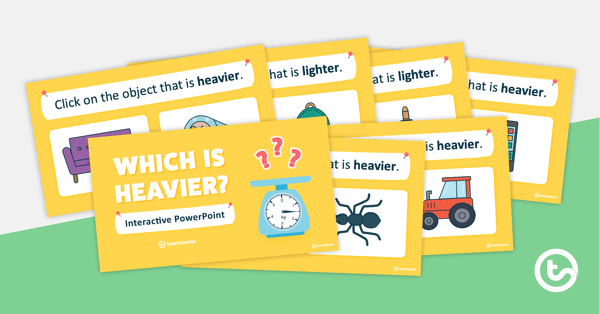
Which Is Heavier? – Interactive PowerPoint
An interactive PowerPoint quiz that asks students to compare the mass of various everyday objects.
- Plus Plan
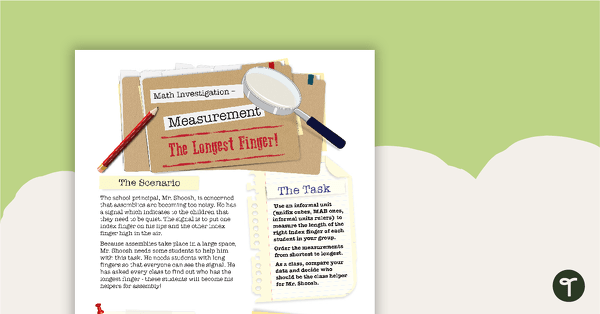
Length Investigation - The Longest Finger
A mathematics investigation involving length, embedded in a real-world context.
- Plus Plan
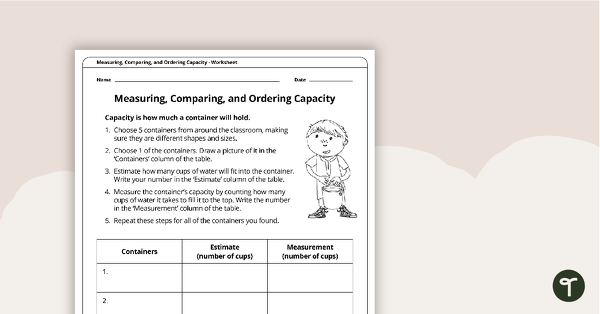
Measuring, Comparing, and Ordering Capacity – Worksheet
A worksheet that explores the concept of capacity using informal units of measurement.
- Plus Plan
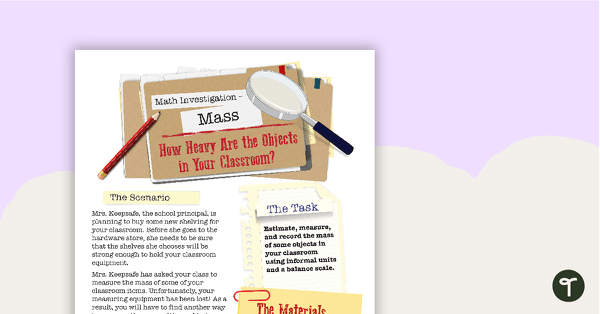
Mass Investigation - How Heavy Are the Objects in Your Classroom?
A mathematics investigation involving mass, embedded in a real-world context.
- Plus Plan
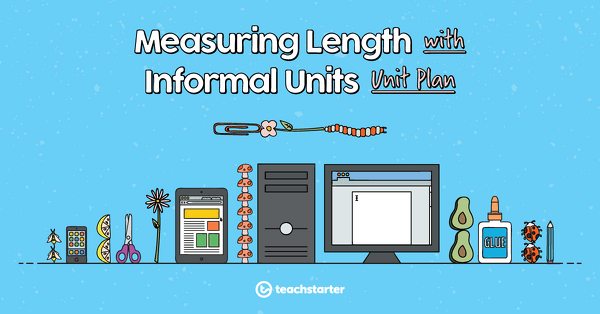
Measuring Length with Informal Units - Unit Plan
This Mathematics unit addresses the concept of measuring, comparing and ordering length using informal units.
- Plus Plan
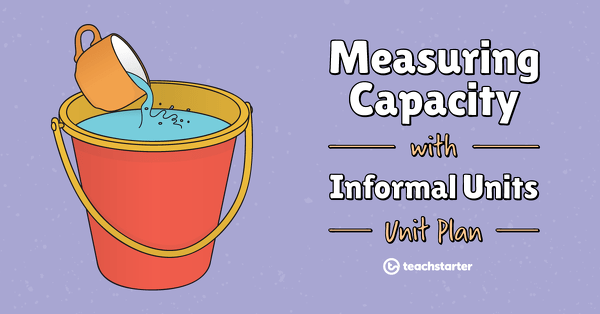
Capacity Investigation - Filling the Fish Tank
A 60 minute lesson in which students will apply their knowledge and understanding of capacity to a real-world situation.
- Plus Plan
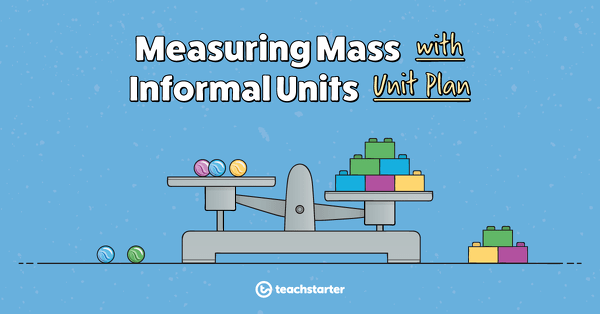
Using Balance Scales
A 60-minute lesson in which students will create a set of balance scales for measuring and comparing the masses of objects.
- Plus Plan
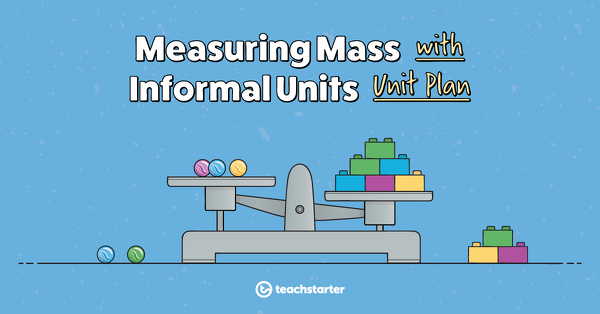
Introduction to Mass
A 60-minute lesson in which students will explore the concept of mass by comparing and ordering objects.
- Plus Plan
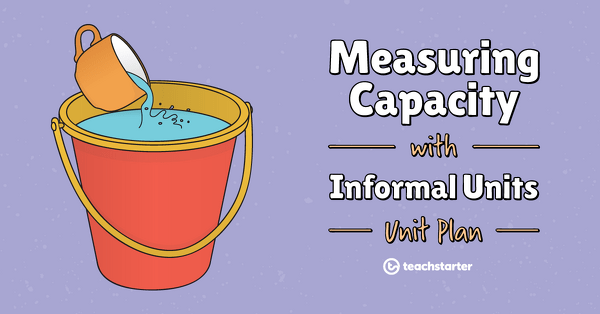
Measuring Capacity with Informal Units
This mathematics unit addresses the concept of measuring, comparing, and ordering capacity using informal units.
- Plus Plan
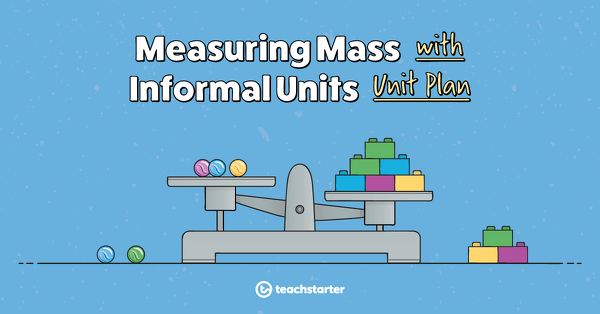
Measuring Mass with Informal Units Unit Plan
This mathematics unit addresses the concept of measuring, comparing, and ordering mass using informal units.
- Plus Plan
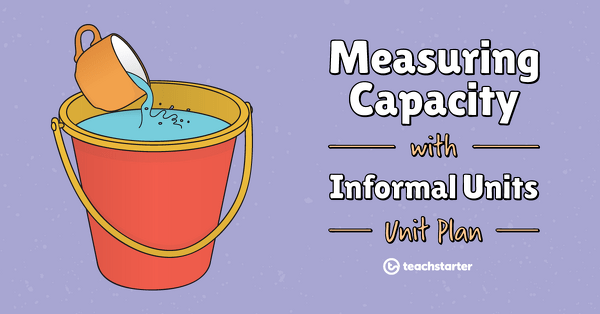
Assessment - Measuring Capacity with Informal Units
A 30 minute assessment in which students will demonstrate their knowledge and understanding of capacity.
- Plus Plan
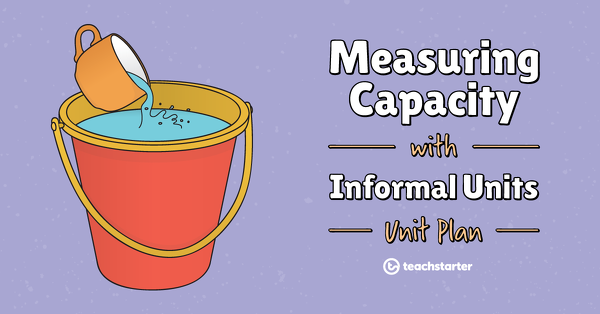
Review of Capacity
A 60 minute lesson in which students will review the concept of capacity.
- Plus Plan
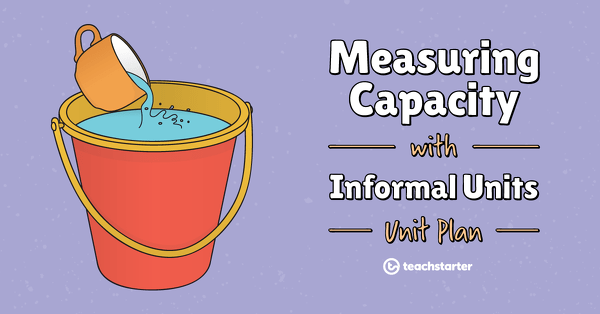
Measuring, Comparing, and Ordering Capacities
A 60 minute lesson in which students will estimate and measure the capacity of containers using informal units.